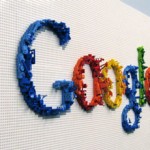 Redmond, Washington / Sunnyvale, California — After almost year and half of jibes and jabs, Microsoft Corp. and Yahoo! Inc. on Wednesday announced that they have entered into a long awaited 10-year online search and advertising partnership in an effort to challenge Google, the world’s biggest internet search engine.
Redmond, Washington / Sunnyvale, California — After almost year and half of jibes and jabs, Microsoft Corp. and Yahoo! Inc. on Wednesday announced that they have entered into a long awaited 10-year online search and advertising partnership in an effort to challenge Google, the world’s biggest internet search engine.
“Both the Internet titans are expecting the deal will save hundreds of millions dollars as well as generating additional revenue.”
Under the arrangement, the long-awaited deal means Redmond, Wash.-based Microsoft’s new Bing will manage power Yahoo search technology, while Sunnyvale, Calif.-based Yahoo! will function as the sole worldwide relationship sales force for both companies’ premium search advertisers through Microsoft’s AdCenter platform — in the first serious danger to Google Inc. — if the companies get regulatory approval and can make the partnership work.

Microsoft CEO Steve Ballmer uses a giant pen to sign the 10-year deal, alongside Yahoo CEO Carol Bartz, on Wednesday at Yahoo’s headquarters in Sunnyvale, Calif. (Credit: Yahoo/Microsoft)
“Simply put, Microsoft will now power Yahoo search while Yahoo will act as an exclusive worldwide relationship sales force for both companies’ premium search advertisers,” the companies said in a joint statement. The deal is expected to go into effect in 2010 and improve Yahoo’s profitability, though not its revenue, the companies said.
The alliance between Yahoo and Microsoft increases competition for Google and builds scale to foster development. CEO Carol Bartz said the deal has “boatloads of value.” Microsoft will share revenue with Yahoo and guarantee some revenue per search.
The 10-year partnership combines both companies’ capabilities and search platforms into a market competitor in greater proportion to fuel development in search and search advertising. The software giant will license Yahoo’s search technologies, but Microsoft’s recently launched Bing search service will “be the exclusive algorithmic search and paid search platform for Yahoo sites”.
Although the deal turns out to be less impressive than the early all-out offer, $44 billion acquisition Microsoft proposed last year — and more over some of the search partnerships once discussed — the deal does allow the companies to share resources and combine their engineering efforts at last. Even together, however, the two companies have only about 30 percent of the search market compared to Google, which has more than twice that amount.
“This alliance gives us the scale and resources to create the future of search,” Microsoft CEO Steve Ballmer said in a statement. “Success in search requires both innovation and scale. With our new Bing search platform, we have created breakthrough innovation and features. This agreement with Yahoo will provide the scale we need to deliver even more rapid advances in relevancy and usefulness.”
Yahoo CEO Bartz, meanwhile, said that the move will help Yahoo to concentrate on other areas, also adding that the deal has the full support of the company’s board (lest anyone wonder what Carl Icahn thinks about the more limited deal).
“This is a significant opportunity for us,” Bartz said. “Microsoft is an industry innovator in search and it is a great opportunity for us to focus our investments in other areas critical to our future.”
The companies are assuring more relevant results for consumers, more value for advertisers, better solutions for Web publishers, and even increased innovation and efficiency across the Internet.
“Users will continue to enjoy search as a vital part of their Yahoo experiences and will enjoy increased innovation, thanks to the scale and resources this deal provides,” Bartz said. “Advertisers will also benefit from scale and enjoy greater ease of use and efficiencies working with a single platform and sales team for premium advertisers. Finally, this deal will help us increase our investments in priority areas in winning audience properties, display advertising capabilities, and mobile experiences.”
As for the financial gain, there is not any huge upfront payment as once discussed. Nevertheless, Microsoft has offered both revenue guarantees to Yahoo in addition to the lion’s share of the search-advertising revenue generated on Yahoo’s site.
Yahoo shares dropped 12 percent upon the news as some investors were frustrated by the modest scope of the deal, which did not include upfront payments for Yahoo. Some investors had expected up to $3 billion upfront, according to a Bernstein report.
“I would have preferred more money,” said Ryan Jacob, chief investment officer of Jacob Asset Management, pointing to the lack of an upfront payment, as well as revenue-sharing and cost-savings terms that were not as high as he expected.
“There are risks on both sides. Big deals like this tend not to work out. It is a long-term deal that is going to take a long time to implement,” said Jacob, whose $40 million fund holds some Yahoo shares. “It is better than no deal.”
In all, Yahoo will receive 88 percent of search revenue generated by its sites during the first five years, and furthermore, Microsoft will guarantee a fixed amount of search revenue for 18 months in each country. The companies expect it will take about two years after the deal is approved to fully get the partnership up and running.
Once the deal is fully hatched, Yahoo said it expects the deal will boost its annual operating income by about $500 million, while reducing capital expenditure by $200 million and increasing operating cash flow by about $275 million per year.
However, Microsoft and Yahoo still face antitrust and privacy issues. Google dropped a planned search partnership with Yahoo last year under pressure from the U.S. Justice Department.
Taking a shot at market leading search giant Google, the partners said the agreement would give advertisers another choice instead of having “to rely on one company that dominates more than 70 percent of all search”.
Microsoft and Yahoo expects the deal to be “closely reviewed” by regulators, but they were “hopeful” it could close in early 2010. To relieve privacy fears, the two companies said they will only share data necessary to “operate and improve the combined search platform”.
Microsoft shares closed up 1.4 percent, while Google shares fell 0.8 percent.
Ballmer and Bartz met “three or four times” over the past six months as they hammered out a deal, according to Ballmer.


